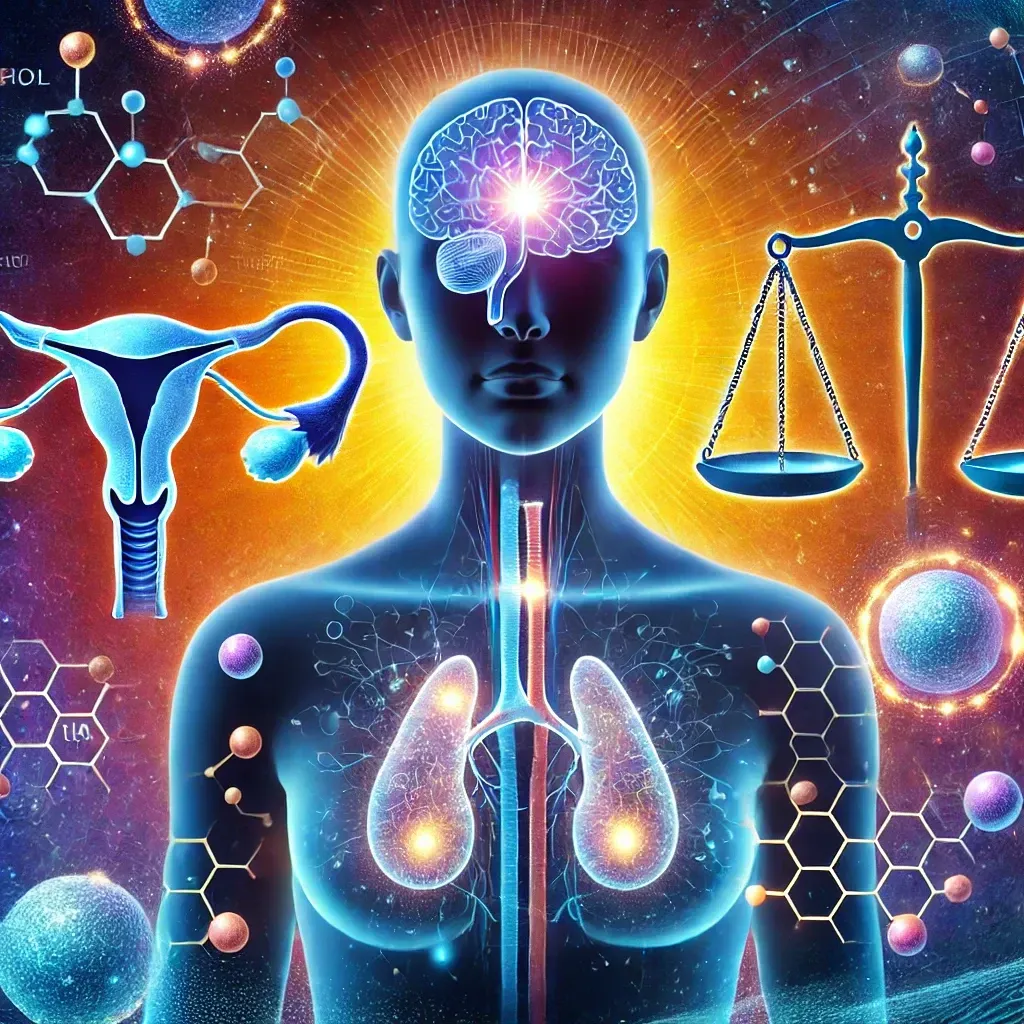
What Should My Hormone Levels Be? Understanding Optimal vs. Normal
What Should My Hormone Levels Be? Understanding Optimal vs. Normal
Introduction
One of the most common questions I get asked as a nurse practitioner is: What should my hormone levels be? This question is crucial because hormones regulate nearly every function in the body, from metabolism and mood to cognitive function and sexual health. Understanding the difference between "normal" and "optimal" hormone levels is key to improving overall well-being.
Personal Experience with Hormone Testing
I remember having this exact conversation with my healthcare provider after receiving my lab results. It went something like this:
Me: “I’m feeling super fatigued, I have brain fog, and I’m struggling to get motivated to do anything anymore. I find myself stuck on the couch binge-watching TV while I have a million things in my head I should be doing or want to be doing.”
Provider: “Well, we got your labs back… Let’s see… Yep, your hormones look good!”
Me: “But I feel terrible.”
Provider: “Yeah, but your hormones look normal. I can give you something for depression if you like?”
Me: “What about the side effects like decreased libido, increased insulin resistance, weight gain, brain fog, erectile dysfunction, and blunted emotions?”
Provider: “Yeah, that can happen… What would you like to do?”
Me: “No thanks.”
Why "Normal" Isn’t Always "Optimal"
To be fair, many providers don’t fully understand or embrace the purpose of hormone replacement therapy (HRT). I’m not advocating that anyone abruptly stop taking SSRIs or other medications—this should always be done in a controlled manner with a healthcare provider. However, I have seen many patients successfully wean off these medications once their hormones were optimized.
So, back to the big question: What should my hormone levels be?
Some believe hormone levels should be within the typical range for your age. For example, if a 65-year-old man has a testosterone level of 200, that’s considered normal for his age. But does that mean he is functioning optimally?
The Science Behind Optimal Hormone Levels
Factors Affecting Hormone Decline
Hormone levels decline with age, but environmental factors can accelerate this decline. Research indicates that exposure to endocrine disruptors—found in plastics, pesticides, and personal care products—can negatively affect hormone production (Gore et al., 2015). Additionally, chronic stress, poor diet, and lack of exercise contribute to hormonal imbalances (Björntorp, 2001).
The Benefits of Achieving Optimal Hormone Levels
When we reach optimal hormone levels, we begin to see the real benefits of hormone replacement therapy, such as:
Reduced brain fog and improved cognitive function (Morgentaler et al., 2020).
Increased stamina, energy, motivation, and libido (Traish et al., 2011).
Improved insulin sensitivity and fat loss (Kapoor et al., 2006).
Enhanced cardiovascular health and reduced inflammation (Saad et al., 2011).
Reduced risk of certain types of cancer and improved longevity (Morgentaler & Kacker, 2014).
How to Determine Your Optimal Hormone Levels
Optimal hormone levels vary from person to person. Some people feel their best at mid-range levels, while others may thrive at the higher end of the spectrum. The best approach is individualized treatment guided by laboratory testing and symptoms. Functional medicine practitioners often measure:
Total and free testosterone
Estradiol and progesterone levels (for both men and women)
Thyroid function markers (TSH, T3, T4)
Cortisol levels to assess stress response
Insulin and fasting glucose levels
Treating Patients, Not Just Numbers
One of the biggest mistakes in traditional hormone management is focusing solely on lab numbers rather than how the patient feels. Just because your levels are "normal" on paper doesn’t mean they are optimal for you.
So, don’t confuse normal with healthy. Optimal hormone levels are about enhancing quality of life, not just falling within an arbitrary reference range. If you’re feeling fatigued, foggy, or unmotivated despite "normal" hormone levels, it may be time to have a deeper discussion with a healthcare provider who understands hormone optimization.
Action Steps to Optimize Hormone Levels
Consult with a hormone specialist: Seek a provider who understands the importance of optimal levels.
Reduce endocrine disruptors: Limit exposure to plastics, pesticides, and synthetic chemicals.
Prioritize sleep: Aim for 7–9 hours of quality sleep per night.
Incorporate resistance training: Strength training has been shown to naturally boost testosterone and growth hormone (West & Phillips, 2012).
Follow an anti-inflammatory diet: Focus on whole, nutrient-dense foods rich in healthy fats, protein, and fiber.
Manage stress: Chronic stress elevates cortisol, which can disrupt hormonal balance. Mindfulness practices such as meditation and breathwork help lower stress levels.
Have you ever been told your hormone levels are "normal," but you still feel terrible? Let’s talk about it!
Interested in seeing if your hormones are holding you back?
Click below.
Or Shoot us a text and we will get you scheduled. 928.642.9067
Book My Free BHRT Consultation
Would you like to join our newsletter?
It's totally free!
Join Derek's Vitality Unchained Newsletter
Copyright © {{right_now.year}} {{location.name}}, All rights reserved.
Our e-mail address is:
{{location.email}}